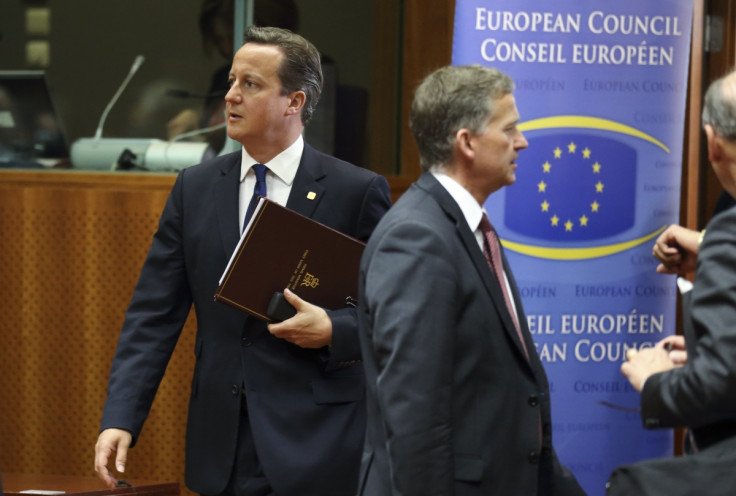David Cameron to present EU Referendum Bill immediately after Queen's Speech on 27 May

David Cameron is to put the EU Referendum Bill at the top of the Queen's Speech, highlighting its importance to the Tory government. He is also likely to present the Bill to parliament the day after the speech on 27 May.
The move came as a pro-EU think tank with ties to moderate eurosceptic Tories has warned Cameron to negotiate with the 28-nation bloc slowly in order to create real reform.
Cameron will signal his determination to hold the in/out referendum by the end of 2017.
Other Bills in the Queen's Speech will be one to implement recommendations of further devolution for Scotland; a new British Bill of Rights to replace the Human Rights Act; and a schools' Bill to make it easier to allow failing schools to be taken out of local government control and turned into academies.
Meanwhile, the think tank Open Europe said there were "dangers" in trying to act too quickly, especially when substantial reforms were within grasp, reported the Financial Times.
Raoul Ruparel, Open Europe's head of economic research, said: "There are some who are urging to bring the vote forward, to try and achieve a quick win — this has its dangers, however. The faster the deal the less likely there is to be big reform."
He added: "David Cameron will be squeezed between those who say no substantial reforms in Europe are possible and those who seek to set the bar so high that it is effectively code for exit before even trying to fundamentally reform the EU.
"He should ignore both camps and instead seek to balance the priorities of the UK public, businesses and his own party along with the achievability of the reforms in Europe."
Britain can get EU reforms in four areas
The Open Europe report suggested that there were four areas where the UK could gain support from the rest of the EU for reform.
These included restrictions on in-work benefits for EU migrants for four years, which is among Cameron's most controversial demands; and safeguards for non-eurozone members such as the UK, Sweden and Denmark by suspending "qualified majority voting" if they think a proposal affects their rights.
Other possible reforms include blocking an "ever-closer union" - as stipulated in the Treaty of Rome - and a veto by national parliaments on EU-wide legislation.
Cameron is due to meet fellow EU leaders for the first time since his election victory in Riga, Latvia, at a summit intended to discuss security and ties with Russia.
Meanwhile, Deutsche Bank is reviewing whether to move chunks of its large British operations to Germany if the UK leaves the EU.
© Copyright IBTimes 2025. All rights reserved.





















